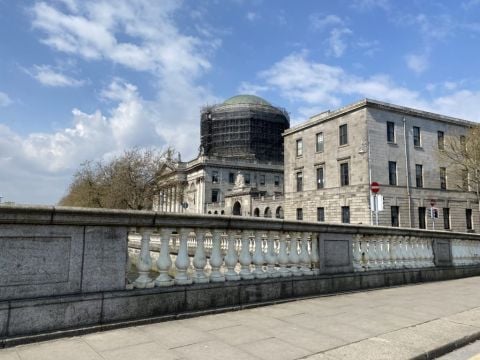The developers of a major data centre in Co Meath carried out certain preliminary works on the land for the project which were exempt as they were done under a licence to conduct archaeological tests, the High Court has heard.
EngineNode Ltd has planning permission for a 24.5 hectare data centre at Bracetown and Gunnocks, north of Clonee.
However, the permission is being challenged by Mannix Coyne and his daughter Amy whose family home and stables are next to the site.
EngineNode has an option to buy the land from the existing owners, the Ward family, who farm the land and who gave permission for the planning application to be lodged by the developer.
The Coynes have asked the court, pending hearing of their main challenge, for an injunction preventing further works unless in compliance with planning permission and a declaration that the works carried out so far have been unauthorised.
Clearance works
They claim archaeological and agricultural clearance works were entirely associated with the data centre project and were done so the developer could "steal a march" in relation to the project.
EngineNode denies the claims and opposes the application by the Coynes.
In submissions on behalf of EngineNode, on the second day of the case, Conleth Bradley SC said the works carried out were done in accordance with a licence issued by the National Monuments Service and were exempt works.
The Coynes were seeking to restrain those exempt works that were completed ten days before they brought their proceedings, he said. The land has been fully reinstated, he said.
The court also heard on Wednesday that talks were taking place between the parties to try to resolve the issue and would continue outside of court.
The case continues on Thursday before Mr Justice Anthony Barr.







